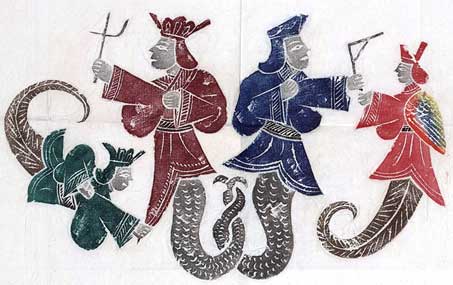Fairy and Folk Tales

CLST 107: Greek Mythology
Prof. Luke Gorton
The online Greek Mythology course explores the representation, interpretation and influence of the classical Greek myths. We consider how the gods and heroes function as objects of deep religious awe and reverence for the ancient Greeks, and yet at the same time how they are portrayed as colorful, unpredictable, subjectively “anthropomorphic” characters in the popular art and literature of classical antiquity. We investigate how archetypal figures and narratives emerge in Greek mythology and how these patterns develop in different representational media and literary genres. We ask how the Greek myths continue to influence our culture today. In our survey of the principal ancient myths, the primary emphasis will be on the myths as they are presented in classical Greek literature: readings come from ancient poems, hymns and other writings. We also view images taken from ancient Greek vase painting and sculpture so that we may examine the representation of the gods, heroes and myths in their own contemporary visual and cultural context.
Comp 2222: Fairy and Folk Tales
Prof. Stephen Bishop
COMP 2222/AFST 2996: African Folktales and Proverbs
Prof. Stephen Bishop
The course considers stories from a different geographical, social, religious, and literary tradition than most students are familiar with –African folktales. In African literature, folk tales have long constituted a base of literary production. Before the arrival of European languages and writing traditions, oral literature was the dominant form of literature in Africa. Folk tales, along with poetry, epics, proverbs, and religious stories, made up a significant percentage of African literature. African folktales reflect many of the same general themes as Western fairy tales, such as fear of the unknown, distrust of stepparents, lessons on sexuality, and appropriate social behaviors. Nonetheless, the historical and cultural backgrounds in Africa lead to stories that are often radically different in their ideology, symbolism, and even comprehensibility for a Western audience. The class draws on basic knowledge of Western fairy tales before concentrating on the differences to be found in African folk tales due to factors such as religious syncretism, communitarian ethics, colonialism, and regional fauna. This intercultural exploration encourages students to reflect on cultural difference, varieties of literary symbolism and style, and what they do and do not know about Africa and why. We do the same comparative study with proverbs as well.
GRMN/ENGL 336: European Fairy Tales
Prof. Susanne Baackmann
This course will explore the genre and development of the classic European fairy tale from its early beginnings to more recent adaptations. We will look at a wide variety of texts and films from Europe, such as oral tales from France and Italy, the collection of tales compiled by the brothers Grimm, tales by Hans Andersen and Oscar Wilde, contemporary fairy tales re-written by women authors, as well as modern American film adaptations. The course will provide a historical overview of the European fairy tale tradition, and investigate differences between the early oral tradition and the folk and wonder tale, the Romantic fairy tale, and more ‘realistic’ versions of the last three centuries. We will explore the following questions: What are the salient features of this genre? When and why did it emerge as a major cultural expression? Was the fairy tale intended for children? What is a child, then and now? To what extent has the historical and social context shaped the form and content of these tales? How do fairy tales express social and psychological conflicts? How are gender roles portrayed? What changes did the fairy tale experience in the last two centuries? How has the media industry adapted fairy tales?
 Department Office
Department Office